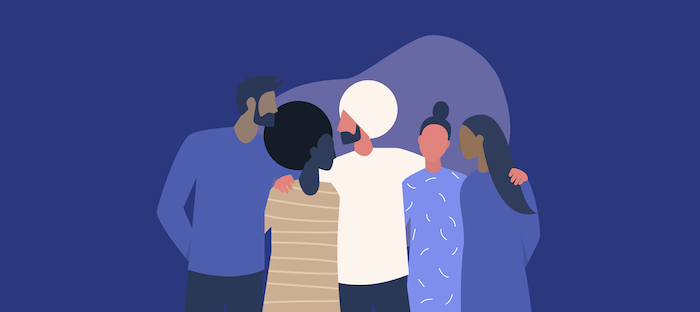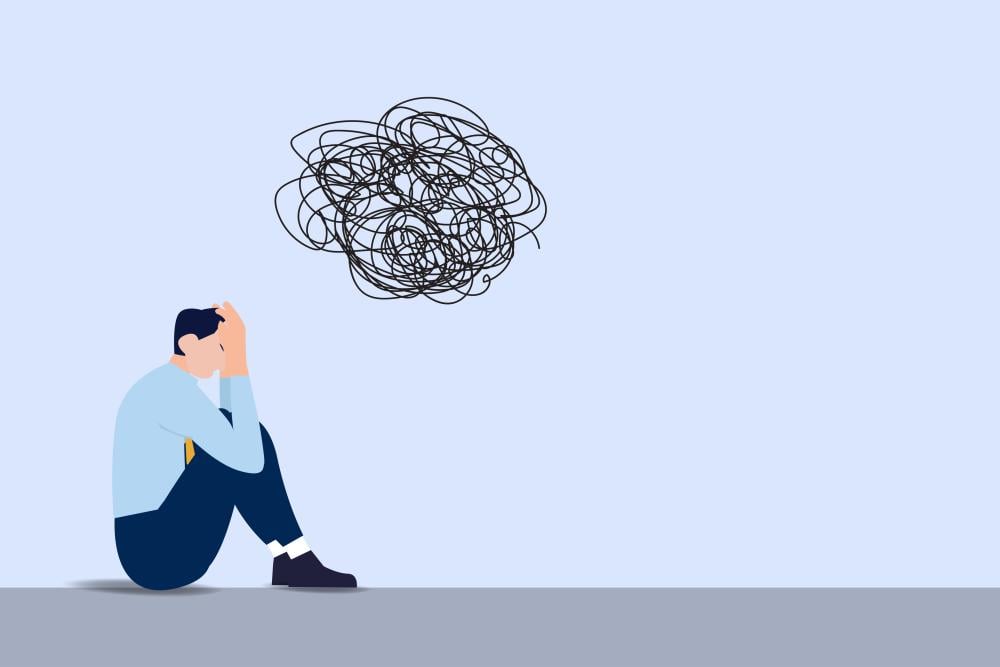
Share Your Story and Your Voice. Help #breakthestigma Around Mental Health.
Read Stories From People Just Like You.
Blog post
Ketamine: A Rising Star in Mental Health Treatment
As a medication used traditionally as an anesthetic, ketamine now shines as a potential lifeline for those battling severe depression, anxiety, and suicidality. Its ability to provide rapid and effective relief in treatment-resistant cases offers hope to those struggling with severe mental health challenges.
Learn More
Free Peer to Peer Communities
ADAA's four free online peer-to-peer communities for people suffering from mental health disorders provides a safe space for support, sharing experiences, and connecting with others.
Learn More
Personal Story
Over The Moon
The story behind my newest single, "Over the Moon," stemmed from my absolute rock bottom. It’s as if the walls around me were caving in one after the other. Growing up became mandatory, and the light of being a carefree twenty-something blew out.
Learn More
FIND HELP
Take Charge. Get Answers. Move Forward.
 ADAA's Find Your Therapist
ADAA's Find Your Therapist
ADAA’s Find Your Therapist Directory connects YOU with licensed mental health professionals who are experts in anxiety, depression, OCD, PTSD and co-occurring disorders.
Learn More
 Personal Stories
Personal Stories
Find inspiration from people like you who have struggled and found help with an anxiety disorder, PTSD, OCD or depression. Share Your Voice and Your Story!
Learn More
 ADAA Free Webinars
ADAA Free Webinars
Free live and on-demand webinars with ADAA member experts answering questions about anxiety disorders, OCD, PTSD, depression and co-occurring disorders.
Learn More
 Join ADAA's Free Mental Health Peer-to-Peer Support Communities
Join ADAA's Free Mental Health Peer-to-Peer Support Communities
Listings of in-person and virtual support groups nationwide for those struggling with anxiety, OCD, PTSD, depression, and co-occurring disorders. anxiety and depression struggles.
Join Today
Just Posted!

Don’t Wait 17 Years: Get Help for OCD
Folks with OCD see 14-17 years, on average, between OCD symptoms appearing and getting a correct diagnosis. Here are four steps as a guide to better outcomes.
Read More
What is Anxiety?
Relationships, health, money, deadlines, world affairs—you name it. We all have plenty to worry about. But people who have generalized anxiety disorder, or GAD (aka the “worry” disorder), experience excessive and unrelenting worry that goes on almost every day.
Watch Here

Living with OCD, Autism and Depression
I was diagnosed with OCD, autism, and depression. In elementary school, I always felt different—I didn't understand the people around me, and I was treated badly.
Read More
UNDERSTAND ANXIETY AND DEPRESSION
Take the First Step - Understand the Facts
Generalized Anxiety Disorder
Depression
Co-Occurring Disorders
Obsessive-Compulsive disorder (OCD)
Panic Disorder
Post Traumatic Stress Disorder (PTSD)
Suicide
Additional Anxiety Disorders

Tips to Manage Anxiety and Stress
At some point, anxiety and stress affect everyone. They can manifest differently in different people, and the level of anxiety one experiences can vary, but there is one thing for certain: there are ways to manage anxiety, even if it feels out of control.
Learn More
Bipolar Disorder
Bipolar disorder, also known as manic-depressive illness, is a brain disorder that causes unusual shifts in a person's mood, energy, and ability to function.
Learn More
Social Anxiety Disorder
What is Social Anxiety Disorder? The defining feature of social anxiety disorder, also called social phobia, is intense anxiety or fear of being judged, negatively evaluated, or rejected in a social or performance situation.
Learn More
Tips to Manage Depression
Depression can make you feel like nothing will help, or that any relief will be temporary, and it can create a cycle of maladaptive thinking, feeling, and doing (or non-doing). However, depression is treatable, and in addition to psychiatric treatment and therapy, there are steps you can take to cope with depression.
Learn More
ADAA Free Webinars
Free live and on-demand webinars with ADAA member experts answering questions about anxiety disorders, OCD, PTSD, depression and co-occurring disorders.
Learn More
Boost Search Results
Off











